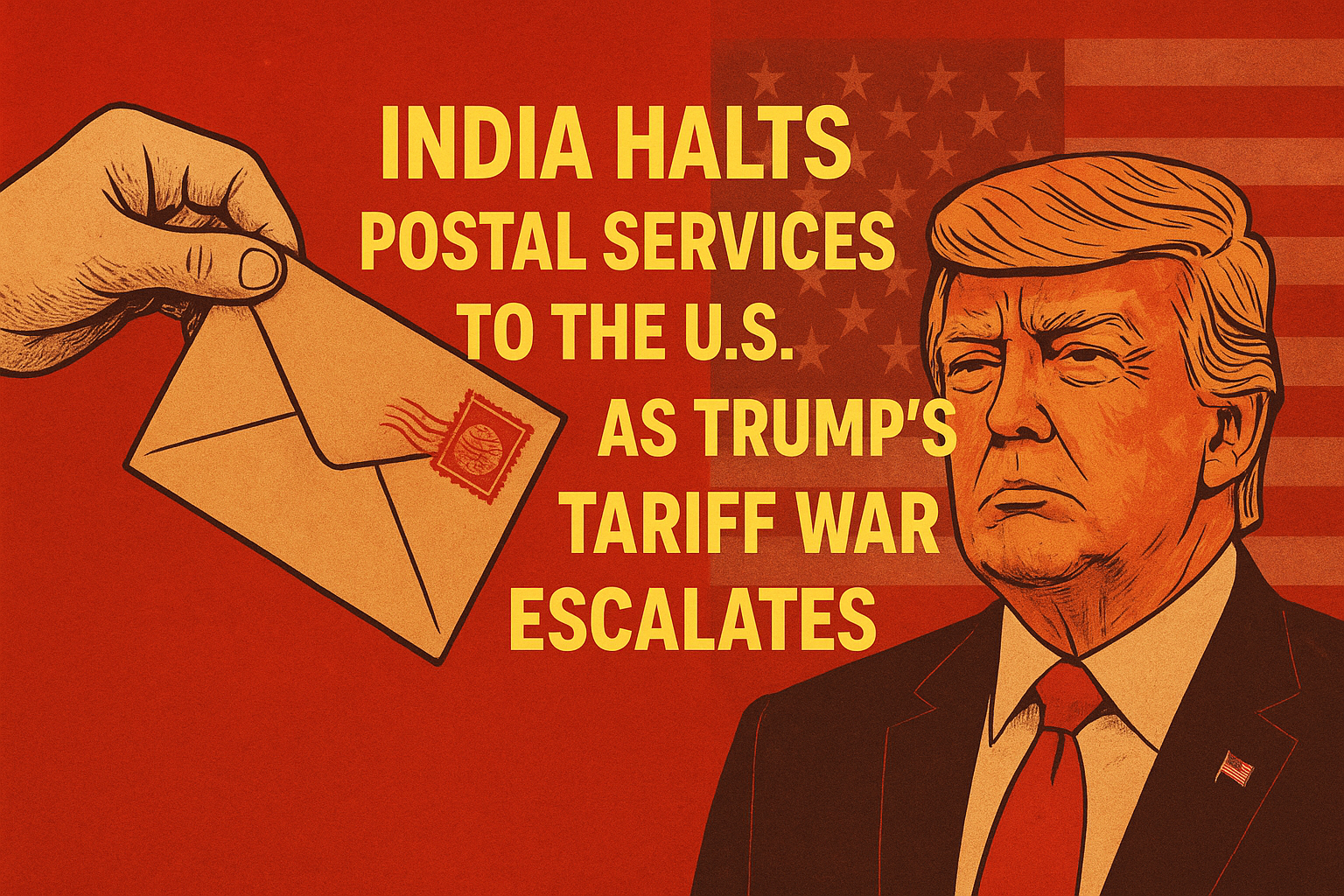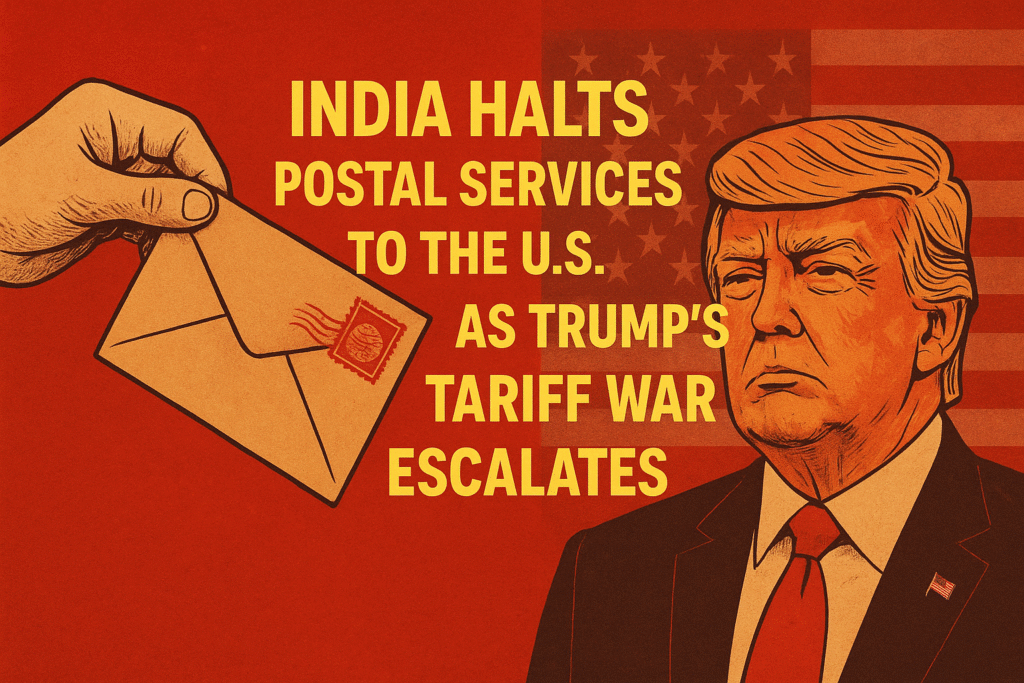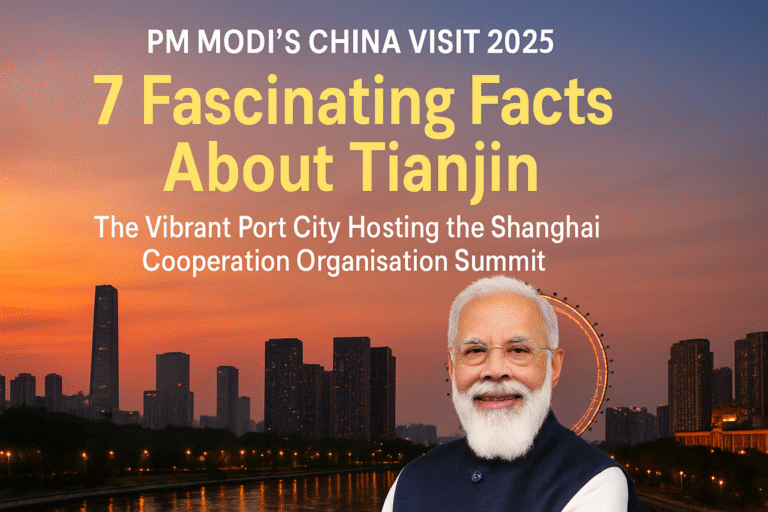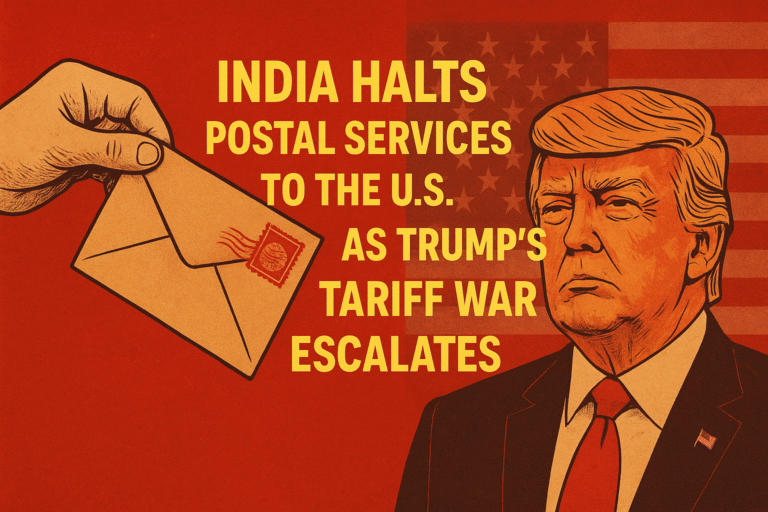
The ongoing trade war between the United States and India has taken a new and unexpected turn. In a move that has caught thousands of individuals and businesses off guard, India has suspended its postal services to the U.S., citing the impact of escalating tariffs and strained trade relations under former U.S. President Donald Trump’s aggressive policies. This sudden halt has created ripples across global commerce, diaspora families, and even e-commerce businesses that heavily rely on cross-border shipments.
The Background: A Clash of Tariffs and Trade Interests

Trade between India and the United States has always been significant. The U.S. is one of India’s largest trading partners, with billions of dollars in goods and services exchanged every year. However, tensions began to rise during Trump’s presidency when Washington imposed tariffs on steel and aluminum imports from several countries, including India.
In retaliation, India slapped tariffs on a variety of U.S. goods such as apples, almonds, and walnuts. What began as a tussle over import duties gradually snowballed into a larger trade war, with both nations refusing to back down.
Postal services, though seemingly unrelated, became collateral damage in this geopolitical chess game. The U.S. administration had raised objections to how India was benefiting from the Universal Postal Union (UPU) framework, which allowed lower rates for developing countries sending parcels to developed nations. Trump’s administration argued that this put U.S. postal services and businesses at a disadvantage.
Why the Suspension Matters
The halting of postal services between India and the U.S. may sound like a bureaucratic technicality, but in reality, its consequences are far-reaching:
- Impact on Families:
Millions of Indian families in the U.S. rely on postal services to receive personal parcels, gifts, and cultural items from home. From handmade sweets during Diwali to traditional garments for weddings, postal connections have always been more than just mail—they’re a bridge of emotions. The suspension has left many feeling disconnected. - Disruption to Businesses:
Small businesses and e-commerce sellers in India frequently ship affordable products such as handicrafts, jewelry, textiles, and herbal items to American customers. The postal halt has directly hit their revenue streams, forcing them to look for expensive private courier alternatives. - Pharmaceutical Shipments:
India is a leading exporter of generic medicines, many of which are sent through postal networks in small batches. The suspension has slowed down accessibility for certain U.S. patients relying on Indian pharmaceuticals. - Symbol of Escalating Tensions:
Beyond logistics, the suspension symbolizes the broader breakdown of trust between the two countries. What once was a thriving trade partnership has turned into a battlefield of tariffs, policy pushbacks, and now postal blocks.
Reactions on Both Sides
The Indian government described the halt as an “unfortunate but necessary response” to unfair treatment in trade and postal negotiations. Officials stated that continuing under the current arrangement was not feasible when the U.S. repeatedly sought to disadvantage Indian exporters.
On the American side, policymakers largely backed the decision to renegotiate postal arrangements. Trump himself had earlier criticized countries like China and India for “cheating” the U.S. through international postal discounts. Supporters of his policies argued that this step was necessary to protect American businesses from what they considered “unfair competition.”
However, not everyone in the U.S. agreed. American importers of Indian goods, particularly in the fashion and handicrafts industries, expressed concern over delays and higher shipping costs. “We built our supply chain around India because it was affordable and reliable. Now, we are forced to rethink everything,” said one small business owner.
The Bigger Picture: Trade Wars in a Globalized World
The suspension of postal services may appear small compared to billion-dollar tariff disputes, but it highlights how trade wars ripple into everyday lives. Globalization has intertwined economies, making it nearly impossible for one nation’s decision to remain isolated.
For India, the U.S. remains a critical market, especially for technology services, pharmaceuticals, textiles, and jewelry. For the U.S., India is a vital partner in both strategic and economic terms. Yet, disputes like these undermine mutual trust and fuel uncertainty for industries and consumers alike.
This standoff also reveals how deeply international agreements, like those under the UPU, matter in modern trade. Postal discounts, freight agreements, and logistics treaties may sound technical, but they are the backbone of how goods move across borders affordably. When these frameworks are disrupted, the ripple effects touch everyone—from small Etsy sellers to families trying to send Rakhi gifts abroad.
How Long Will the Suspension Last?
As of now, there is no clear timeline for when services will resume. Negotiations are likely to hinge on broader trade talks between the two countries. If the U.S. and India can find middle ground on tariff disputes and postal cost-sharing, the services may be restored. However, given the confrontational stance taken during the Trump era, resolution could take months or even years.
In the meantime, private courier companies are seeing a surge in demand, though at significantly higher costs. For many small businesses, these expenses are unsustainable, pushing them to either suspend operations or shift to local markets.
What Lies Ahead
Looking forward, experts believe that both nations will eventually return to the table for negotiations. The U.S. and India have far too much at stake in their economic partnership to allow such disruptions to persist indefinitely. But the suspension serves as a stark reminder that trade wars rarely stay confined to tariffs; they spill over into everyday life, affecting people in unexpected ways.
If anything, this episode underscores the need for diplomacy, balance, and respect in trade negotiations. Without it, even something as basic as sending a letter or a small parcel becomes entangled in the politics of global power struggles.
FAQs on India Halting Postal Services to the U.S.
Q1. Why did India halt postal services to the U.S.?
India suspended services as part of growing tensions with the U.S. over trade disputes and disagreements related to international postal agreements. It was seen as a response to U.S. tariff measures and policy changes.
Q2. Who is most affected by this suspension?
The suspension impacts Indian families sending personal parcels to loved ones in the U.S., small businesses relying on affordable shipping, and even pharmaceutical buyers depending on Indian medicine shipments.
Q3. Are private courier services still available?
Yes, private courier companies such as DHL, FedEx, and UPS continue to operate. However, they charge significantly higher rates compared to government-run postal services, making them less affordable for individuals and small businesses.
Q4. How does this tie into Trump’s tariff war?
The suspension is directly linked to the larger trade war initiated during Trump’s presidency, where both India and the U.S. imposed tariffs on each other’s goods. Postal agreements became another battleground in this conflict.
Q5. Will postal services between India and the U.S. resume soon?
There is no official timeline. Resumption will likely depend on future negotiations and trade settlements between the two governments.
Q6. Is this the first time such a suspension has happened?
Yes, this level of postal disruption between India and the U.S. is highly unusual. It marks a rare escalation in diplomatic and trade disagreements.






